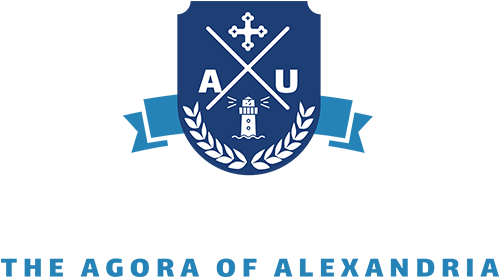Last updated February 3rd, 2025
Certificate in Eastern Christian Scripture
The Certificate in Eastern Christian Scripture is a specialized program that offers in-depth study of the sacred texts and traditions of Eastern Christianity. Students enrolled in this certificate program gain a comprehensive understanding of the Bible, the teachings of the early Church Fathers, and the rich theological heritage of Eastern Christianity. Through rigorous coursework and guided exploration, graduates are equipped with the knowledge and skills to engage with and interpret Eastern Christian Scripture in a meaningful and informed manner.
Insightful Synopsis
Overview
The Certificate of Eastern Christian Scripture is a short-term graduate program focused on the scriptural traditions of Eastern Christian communities and their reception. The program provides students customizable training through a set of course offerings in Eastern Christian biblical studies courses appropriate to educators, church or parachurch ministries, and personal enrichment.
Achievement Results
Outcomes
The Certificate in Eastern Christian Scripture program outcomes are intended to prepare students to:
- Recall a basic knowledge and matters important to the history, culture, and theology of early and Eastern Christianity through the focused study of sacred scripture in the Eastern Christian tradition.
- Explain ideas and concepts pertinent to Orthodox Christian biblical studies.
- Utilize research methods and theoretical frameworks rooted in Eastern Christian approaches to and exegesis of sacred scripture for engaging contemporary paradigms.
- Think theologically and critically about the Orthodox Christian approaches to scripture both historically and within contemporary church and society.
- Construct and defend a position rooted in Orthodox Christian approaches to scripture.
- Produce new and original work articulating a holistic understanding of Orthodox Christian approaches to sacred scripture.
Required Courses
Holy Scripture I: Introduction to the Old Testament
This course provides a survey of the Old Testament within the context of Orthodox Christian theology as well as modern biblical criticism. The course content is divided into three parts, each focusing on different aspects of Old Testament studies: Part 1 focuses on the introduction to Old Testament studies as they are presented in the modern era; Part 2 is a (re)reading of the major portions of the Old Testament in light of the modern scholarly conversation; Part 3 looks at Byznato-Chalcedonian approach to the Old Testament in the modern era as a dialogue partner with our own Orthodox tradition within the non- Chalcedonian communion.
Holy Scripture II: Introduction to the New Testament
A survey of the New Testament, this course covers the life and redemptive work of our Lord and Savior Jesus Christ and the early development of the Church through the Acts of the Apostles and the Epistles. Readings outside of scripture set the historical background for the reading of the primary texts.
The courses listed here are indicative, and there is no guarantee that they will run for the current academic year. Students will take the courses in the order they are made available.
Elective Courses
Students choose Two courses from the followingSuffering and the Scriptures
In this course, we will be examining the phenomenon of human suffering as our approach to encountering the scriptures, focusing on the Old Testament. By exploring the notion of suffering in the human condition, we will unlock some of the more important points of Christian theology that will provide us with the exegetical framework for reading, understanding, and integrating the Old Testament narrative into our lives.
Healing and the Word
This course looks at the matter of the textualization of the incarnation event as the remedy for the ailing human condition and is a companion piece to the course Suffering and the Scriptures. In this course, students will approach the message of the Gospel from the lens of healing, examining the formation of the New Testament in light of the early Christian movement amidst the backdrop of the emergence of rabbinical Judaism and the transition from Hellenic to Roman rule in the region.
The Book of Genesis
This course investigates the book of Genesis. Various hermeneutical approaches to the book of Genesis will be undertaken, beginning with the Patristic reception of these texts and their subsequent life in the Church. Special emphasis will be placed on the theology, structure, composition, and themes of Genesis as pertaining to their significance for Christian faith, life, and ministry. Additionally, challenges posed by the content, construction, and assembly of the text by modern critical methods will be explored in order to calibrate the patristic response to such challenges.
THEIR WORDS
Students' Life-Changing Experiences
See why Orthodox education at this pioneering university is so valuable for life after graduation.
Studying at HTC helped me to perceive the church as a living body of Christ and taught me how to embrace that, and to look at every member of the church as a true member and the one I have to love.

Fady Ghattas
Alumnus
Sample Certificate Study Plan
| Term 1 – Fall | Term 2 – Spring | Term 3 – Summer |
|---|---|---|
| Required Course 1 | Elective 1 | Elective 2 |
| Required Course 2 |
How to Apply?
01
You Apply
Tell us a little about yourself and we’ll help with the rest. Our convenient online application tool only takes 10 minutes to complete.
02
We Connect
After you submit your application, an admissions representative will contact you and will help you to complete the process.
03
You Get Ready
Once you’ve completed your application and connected with an admissions representative, you’re ready to create your schedule.


